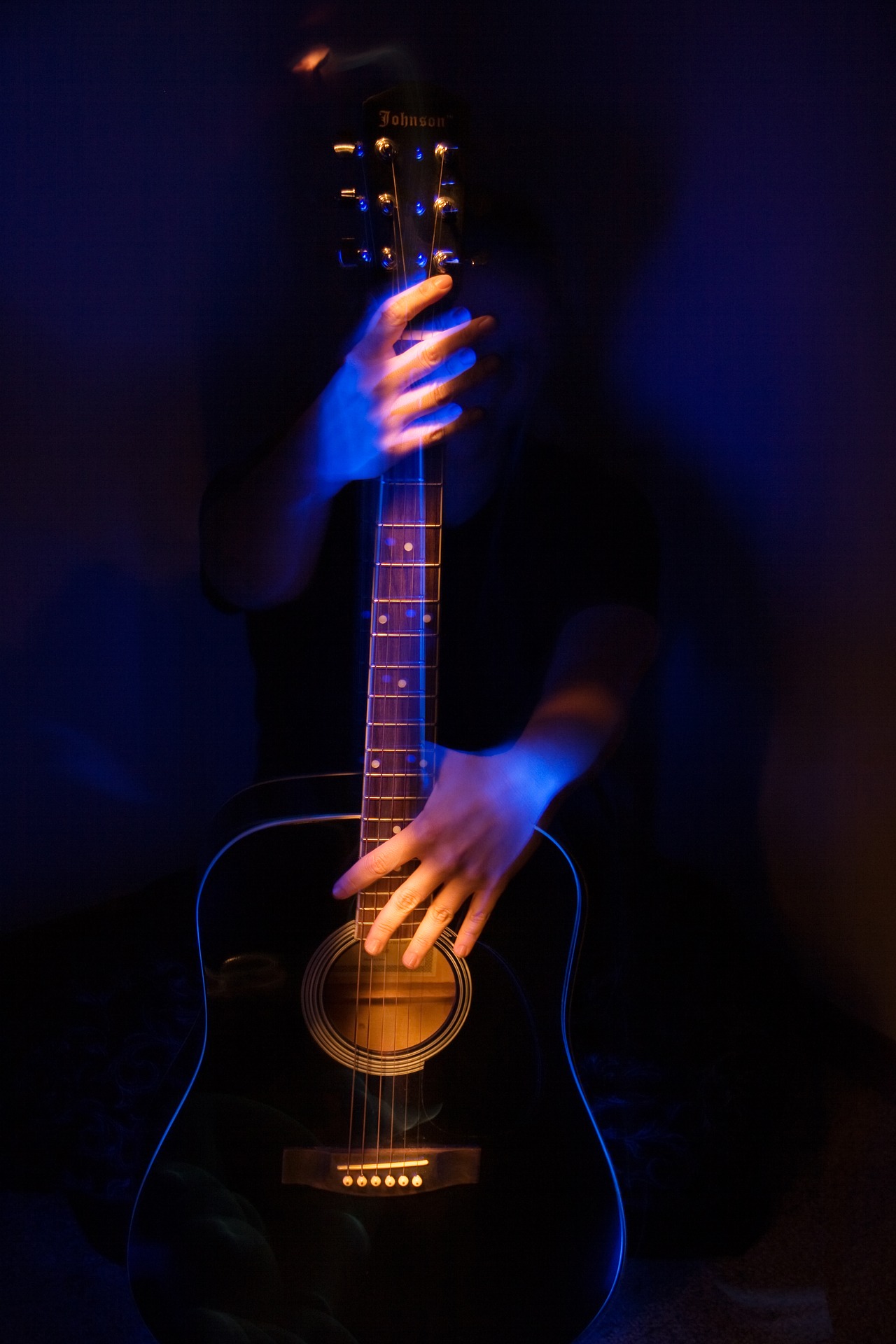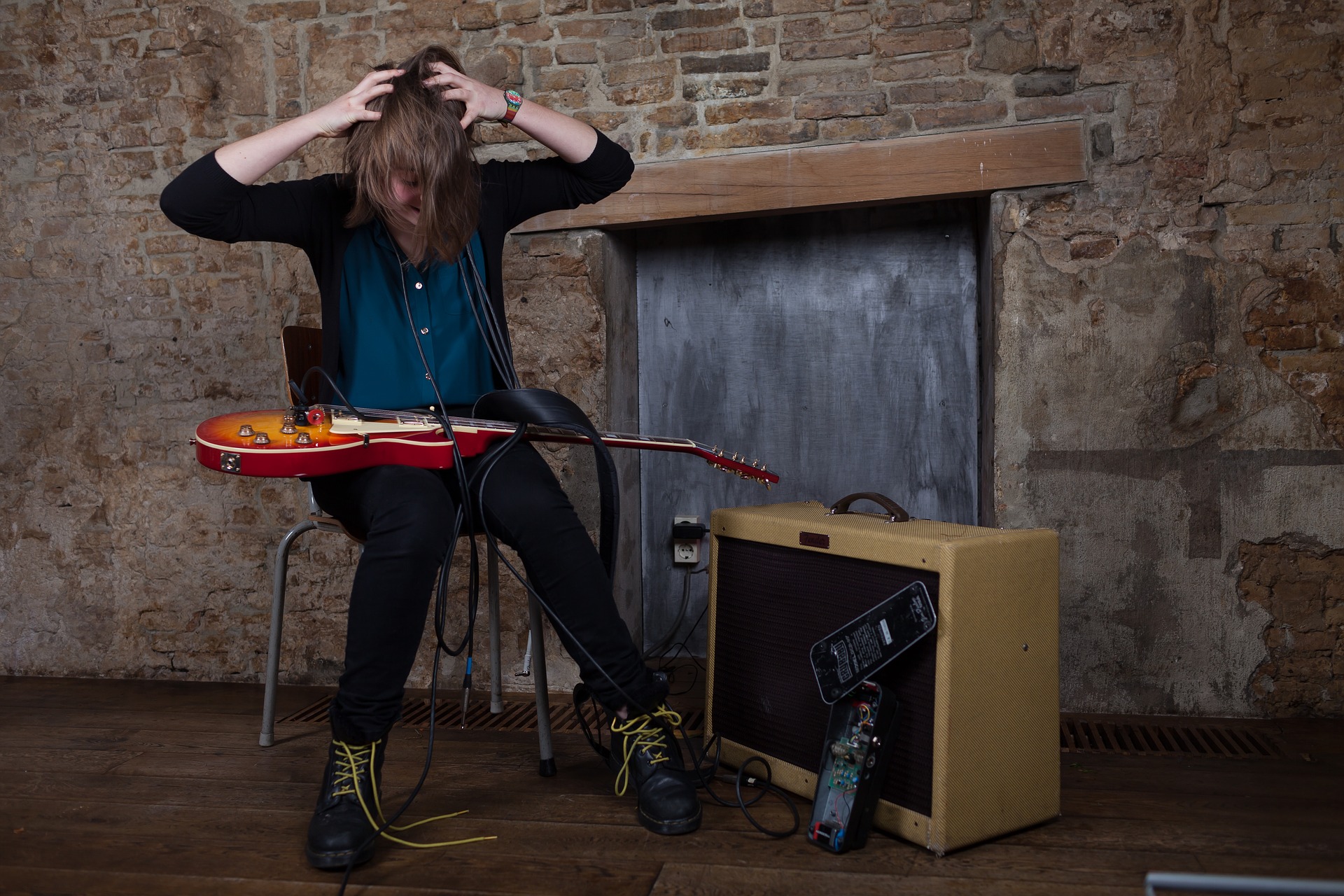Managing Your Music Lesson Nerves

“But I played it perfectly during practice!”
Odds are, as a music student, you have expressed - or at least felt - a similar sentiment. You practiced diligently all week long, saw real progress, and even had some brilliant moments during your private run-throughs. Then, under the eyes of your teacher, your focus dissolves, your heart races, and you play as though you haven’t touched your instrument in weeks.
It’s common for students to feel nervous in lessons. It’s also common for anxiety to have a negative effect on playing, which compounds the situation by making students yet more nervous. However, while frustrating, lesson anxiety is understandable and nothing to worry about. With the right attitude and strategies, you can learn to manage your nerves and begin to really enjoy and get the most out of your lessons.
Why you get nervous
You’re not the expert
Many of my adult music students are working or retired professionals who are experts at managing stressful work lives. They are confident doctors, therapists, public speakers, teachers, professional athletes, etc, and are used to doing their job under pressure or in front of an audience. Thus, they are baffled when a mere music lesson - upon which no one’s life, education, or career depends - sends them into a state of panic and dread.
Consider the years of education and training that went into your professional formation. While it might be a distant memory, you were once completely ignorant about your line of work. You were almost certainly nervous when you first began to treat patients, teach classes, or compete professionally. Relative to the time you devoted to your professional formation, you are in the earliest stages of your musical development. Beginners at anything often feel clumsy, ignorant, and uncomfortable -- you’ve just forgotten what it’s like to be a novice.
Remember that your teacher went through thorough and rigorous training in order to become a professional musician and educator. No matter how beautiful and skillful their artistry may seem to you, there is no magic behind their playing. Just patience and dedication. They started exactly where you are now, the only difference is that they’ve been on the road longer.
Music is personal
You’re taking music lessons because you love music and your instrument. Your current repertoire may be music that is close to your heart. Maybe you have wanted to learn to play your instrument all your life, and this is the first time you have dared to try. When something matters to us -- especially an artistic pursuit -- sharing our most sincere attempts at it makes us feel vulnerable.
Furthermore, you know that part of the point of music lessons is for your teacher to tell you where to improve. Hopefully your teacher delivers feedback in a positive and nurturing way. Even so, sometimes the most sensitively delivered constructive criticism still feels unpleasant.
Music is personal, but it also has an equally important analytical side. Acknowledge your passion for music and your emotional investment in lessons, but learn when to adopt a cool, methodical mode of thinking. Cultivating a calm, logical thought process helps us resolve all sorts of musical challenges and, ultimately, express ourselves more effectively.
Strategies for Managing Lesson Nerves
Acknowledge your nerves rather than resisting them.
Know you are anxious and don’t be hard on yourself for it. If your anxiety shows itself physically try repeating gentle affirmations such as “My hands are shaking, but I’ll play anyway and give it my best shot.”
Tell your teacher how you feel.
He or she may sense that you’re nervous, but it can still help to discuss it. Your teacher has very likely been in the same position that you are in. Almost all of us have felt anxious about lessons and performances, and we’ve all learned how to cope. Sharing strategies for overcoming that anxiety is part of our job.
Trust your teacher.
When nerves hinder your playing, we can help you even though you're not playing your best. We can often tell the difference between random, nervous mistakes and errors due to technical weakness or gaps in musical understanding. Furthermore, though you may always play worse in lessons than in practice, we can see improvement over time. We can see when you have integrated our advice from the last class, and when we need to reiterate an important point.
See mistakes as opportunities.
Whether due to nervousness, incorrect practice, or technical weaknesses, all errors can teach us something. Learn to see them as information - neutral, or even useful - rather than something bad. Likewise, try to see your teacher’s feedback as practical information rather than something to react to emotionally.
Don’t worry about impressing your teacher.
We don’t come to lessons looking to be entertained or impressed by your playing. We enjoy any class where we get to share ideas that help you develop musically. There is a lot to teach about the musical process that doesn’t depend on you perfectly mastering material and concepts from the previous class. Some classes present opportunities to improve practice habits, others to discuss technical subtleties and interpretative possibilities. We want our students to enjoy music and progress as their abilities allow, and we are never disappointed by your most sincere efforts.
Record yourself.
When you’ve arrived at a point in practice where you are really enjoying your playing and like how you sound, record your piece. Trust me, your teacher will love to hear it! Don’t think of it as cheating, or avoiding facing your lesson nerves. On the contrary, once your teacher has heard recordings of your playing at its best, you may start to feel less nervous during lessons. That can help you break the cycle of anxiety and subpar lesson performance.
You’re never done, so enjoy the journey.
Learn to enjoy yourself in spite of nerves, errors, and rough performances. You might learn to manage your nerves with your first teacher, and then feel like you are starting all over again when you move on to a different teacher or a new learning environment. Hopefully, once you develop the tools you need to manage your lesson anxiety, your nerves will be easier to recognize and let go of when they come around again. We never completely finish learning anything in music. It’s an ongoing process, and our only choice is to enjoy the ride.
Find more Guitar Classes and Tutorials







Comments
Amando Amador
Tue, 11/10/2020 - 3:07pm EST
Permalink
Just a question
Hi there, nice to meet with you guitar teacher, my name is Amando , and I would like to know if you can give guitar lessons personal, I would love to learn play the guitar the way you said I'll play if I practice the way you teach. Do you speed Spanish? Hi